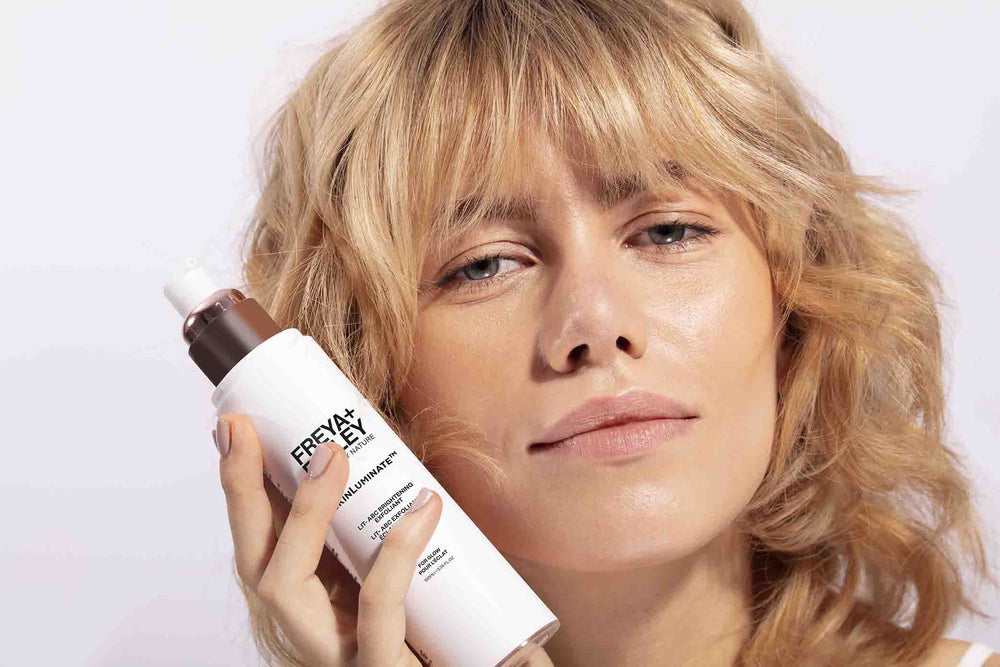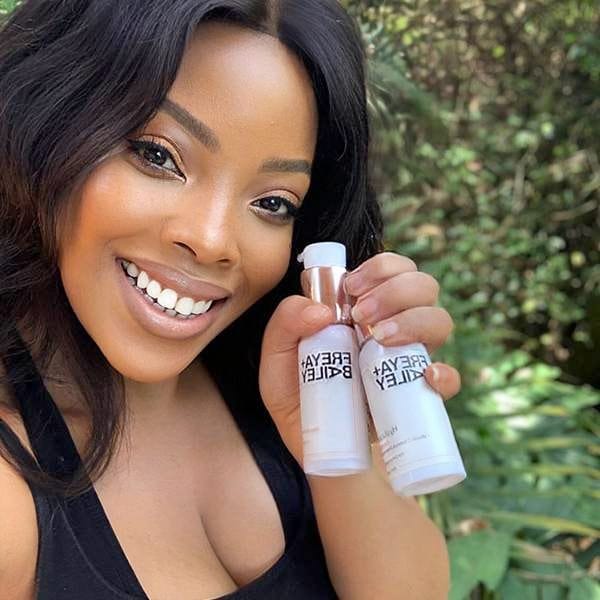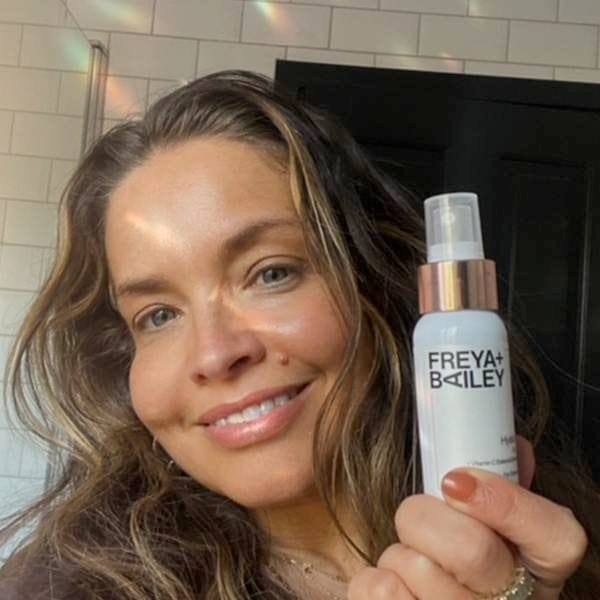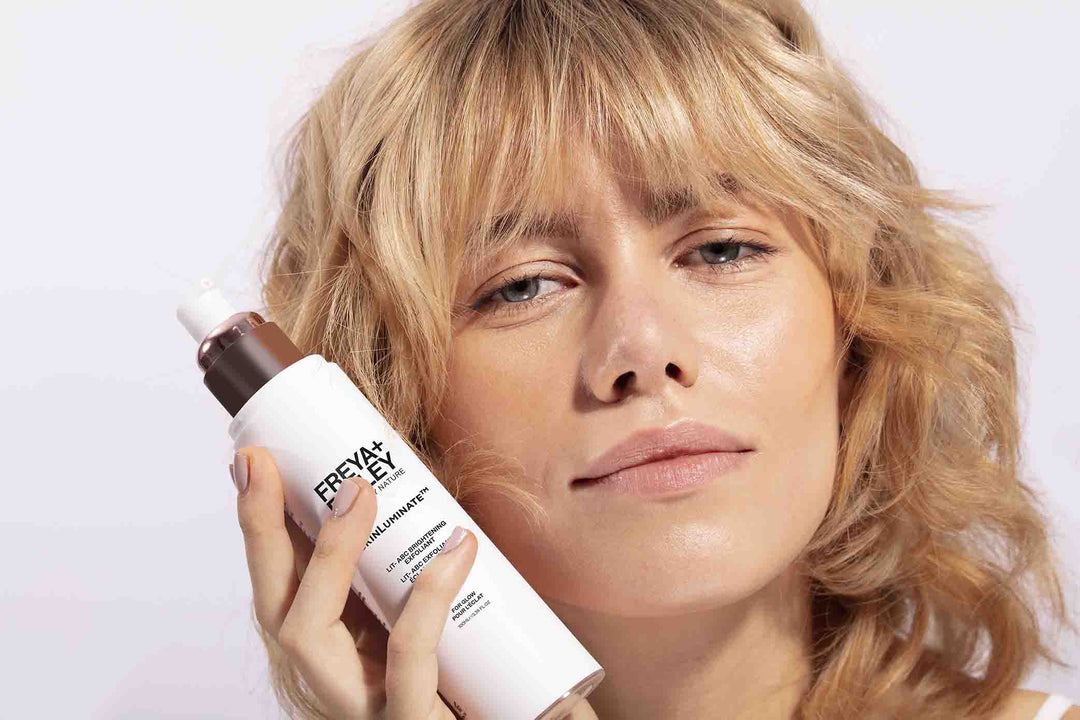Menopause is technically defined as the one-year anniversary of not having your period. It lasts just one day. Every day after is called post-menopause. On the other hand, perimenopause, menopause’s precursor, typically starts in a woman’s 40s and can last up to 7-10 years. During this stage, your hormone levels can fluctuate dramatically from month-to-month, resulting in hot flushes, brain fog, lagging libido—all due to dwindling levels of the female sex hormone estrogen. But what does it do to your complexion? Turns out, a lot.
Oestrogen plays a significant role in collagen production, skin’s elasticity, thickness, and moisture levels, as well as healthy blood vessels (hello, rosy glow). When you produce less estrogen, you may see the opposite: lines and wrinkles, dryness, sensitivity, dullness, and sagging.
Our new
SkinElixir product line is targeted to alleviate these symptoms.. Featuring cooling, collagen-boosting products,
SkinElixir as been designed to answer the particular needs of menopausal skin, from redness and hot flushes to extreme dryness that can exacerbate fine lines.
Here is how how perimenopause and menopause affect the skin, plus tips on skincare ingredients and daily routine.
What are the most common skin complaints associated with perimenopause and menopause?
Increased dryness and wrinkling, loss of skin laxity and skin thinning, night sweats and hot flushes that cause sudden reddening.
Why does the menopause accelerate signs of skin ageing?
When women reach menopause, the levels of collagen and elastin in the skin reduce, while skin thinning accelerates. This can lead to dryness, itching, wrinkles and a reduction in suppleness, as well as an increase in sensitivity. As the cell turnover slows down, natural moisturising fats from the skin are lost and glands that secrete oil and sweat become smaller, again contributing to dryness.
Which skincare ingredients should you look out for to help menopausal skin?
Peptides are important as they stimulate collagen production and improve cell turnover. Moisturising ingredients are also key; look out for hyaluronic acid and ceramides. Glycerine and niacinamide are also good. It’s worth using a soap substitute, plenty of emollient, and don’t forget to moisturise your body, too.
Why do some women experience acne during this time?
Menopausal acne is a well-known problem to dermatologists, but it is not clear exactly why this happens. It is likely related to the imbalance of male and female hormones that occurs around menopause. After menopause, oestrogen levels decline rapidly, whereas androgens decrease slowly. This imbalance can lead to overall higher androgen levels and may contribute to acne in some menopausal women.
Do I need to adapt my well established skincare ritual?
When it comes to changes to the skin the best place to start is to look at the products you currently have," Ask yourself if these products still suit the needs of your skin. People can often use the same products for decades, but as your skin changes, then so should your products
What does an optimum daily skincare routine around this age look like?
1. Use a gentle cleanser to wash your face morning and evening to help combat skin dryness. Consider building in a chemical exfoliant into your routine for pro-ageing benefits, but do this gradually to avoid irritation. Our
Defy Coenzyme Firming Cleanser is for you.
2. Antioxidant ingredients have a host of benefits including protection from pollution and pro-ageing effects. I suggest regularly using a product that contains antioxidants, such as a serum, before your sunscreen. Examples of antioxidants are vitamin C, omega-3 fatty acids or, coenzyme q10 and hibiscus extracts. Try our
Biome C Repair Serum.
3. High-factor sunscreen (SPF 30-50) is important at all ages! However, at a time when skin is delicate, and keeping in mind that sun damage is cumulative during your life, it’s now crucial to incorporate sunscreen into your morning regime. The
Surge Advanced Protect + SPF 30 moisturiser is ideal for the job.
4. As skin can feel dry when you’re going through the menopause, a moisturiser is helpful to combat dehydration, which can leave skin flaking, feeling tight or irritated. We recommend also incorporating an overnight moisturiser applied after active ingredients in a serum. For overnight rejuvenation, we recommend
Collagen Q10 Firming Night Cream.
Any final skincare advice?
Be gentle with the skin and avoid harsh exfoliating products. Do not use soap-based cleansers on your face and body as these can aggravate skin dryness.





